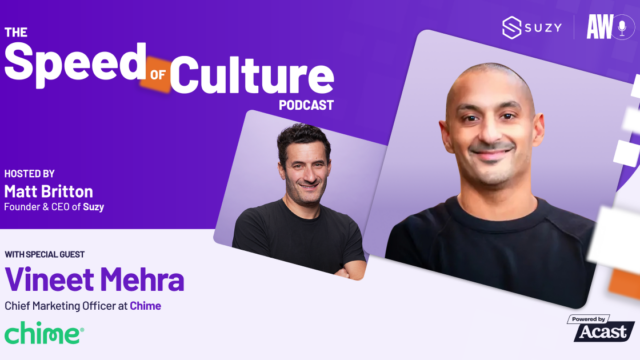‘If You Know You Know’ Brands Are Forcing Us to Redefine Marketing Success
With C-suite leaders from iconic brands keynoting sessions, leading workshops and attending networking events, Brandweek is the place to be for marketing innovation and problem-solving. Register to attend September 23–26 in Phoenix, Arizona.
Today, people are more skeptical of traditional marketing hype and are seeking pragmatic value from less obvious sources. A new phenomenon of brand is commanding these audiences’ attention: the If You Know You Know, a less “seductive” but more discerning breed of labels slowly emerging to shake things up. Epitomized by brands like Costco’s Kirkland, CeraVe and Café Bustelo, they have forged a devout following of discerning, in-the-know consumers.
Some might class them as cult brands. But cult brands are more mainstream and traditional in their marketing approach—think Apple, or Glossier in its heyday. IYKYKs, in contrast, are more enigmatic. They fly under the radar, shrugging traditional marketing paths and earning the fandom otherwise afforded to a category leader.
The phenomenon of IYKYK brands is flipping the script on traditional marketing, reshaping how consumers appraise what brands can bring to their lives. IYKYKs are all about “quiet value” that speaks for itself—not conveyed through obvious marketing devices like claims and paid-for endorsements. This value has been discovered and tested among circles of trust and influencers across platforms. For example, CeraVe’s increasing popularity over recent years has been driven by organic mentions of its products, with dermatologists and aestheticians sharing their confidence in it with online audiences that are increasingly drawn to genuine word of mouth. The power of personal recommendations and less performative, more authentic experiences has become the gold standard of brand credibility.
The rise of these dark horses of the brand world also makes sense in the face of increasing consumption fatigue and big brand disinterest. While the brand Goliaths embrace concepts like price strategies, shrinkflation and hype, the unassuming IYKYK Davids are prioritizing substance over scale, delivering exceptional products rather than chasing mass appeal. e.l.f. Cosmetics and its Camo Concealer, for example, were famously praised by a nurse during the pandemic for being the only product to both soothe and cover up marks from double-masking. This anecdote epitomizes the brand’s value and consumer-driven approach to marketing that quietly convinces rather than noisily tries to persuade.
In essence, IYKYKs represent a gauntlet thrown down to many conventional brand-building strategies and their consumer-blind pursuit of growth—such as chasing incremental market share gain through range extensions, blinkered segmentations and unrelenting mass messaging.
The simplicity of IYKYK brands’ success is in knowing the consumer and pivoting to community-centric behaviors. Even big brands have learned to respond to this new phenomenon. Take Lululemon, a brand that could have been spooked by the popularity of cheaper alternatives. The apparel company dealt with an emerging dupe culture by inviting people to trade in their knockoffs for the real thing—a great example of a brand doing consumer-centric well.
To emulate the ascent of the IYKYKs and cultivate a following that is savvier, connected and in the know, brands must redefine success. Those that do it well know how to project an aura of exclusivity and inclusivity simultaneously; they offer products and experiences that might be only known by a select few but foster a sense of belonging among the initiated. The appeal of many Kirkland products, for example, is fueled by whispers that its unassuming packaging houses category-leading products disguised under its modest label.
They also consistently challenge marketing conventions. IYKYKs have the bravery to explore communication that would seem counterintuitive to many marketers—individualistic and atypical alternatives to the mainstream. e.l.f. Cosmetics acts as a brand choosing to buck many category conventions like indulgence and mystique, instead tapping into trends like loud budgeting with the brand’s rewards app, which promotes opportunities to spend money wisely.
In an ever more connected world, IYKYKs also recognize that novelty, individuality and clandestine experiences are a rarity. They embrace being the lesser-knowns, the underdogs, the subcultures. Consider Chime, the bank without a branch that homed in on broad consumer distrust of traditional big banks, offering fee-free banking, overdraft protection and early paydays for customers using direct deposit.
In essence, the IYKYKs are showing us all that the thirst for growth at all costs has stripped the value from many brands and products. Consumers have recognized this and are seeking value and credibility among each other. Tomorrow’s most influential brands may be those you’ve not yet heard of.
https://www.adweek.com/brand-marketing/if-you-know-you-know-brands-are-forcing-us-to-redefine-marketing-success/

